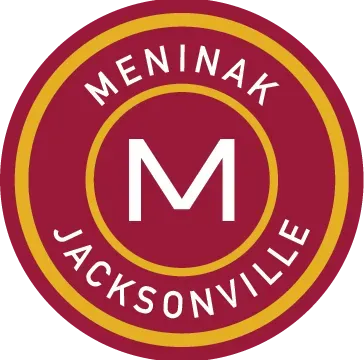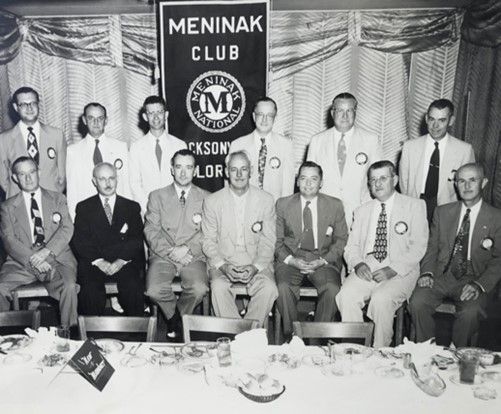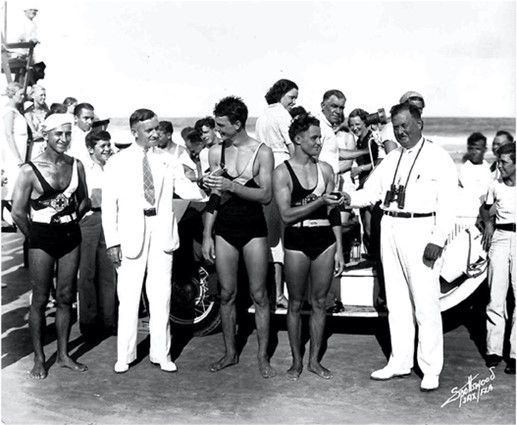ENDURE
“It’s the integrity – not only in our members but in our club – wholeness of character, doing the right thing in a reliable way, stated values and relentlessly pursuing them as a moral compass.” - Capt. Bunky Johnson, USN (Ret.)
Meninak Through the Years
For a 106-year-old civic charity organization like Meninak to endure means more than just longevity—it signifies a legacy of service, adaptability, and unwavering commitment to its mission. Endurance is about:
Upholding a Legacy of Service
Meninak has spent over a century bringing help where none is available, ensuring that the youth and underserved in Jacksonville receive support. The club’s endurance is a testament to the impact it has made—not just in numbers, but in lives changed and communities strengthened.
Adapting to Changing Times
The world has changed drastically since 1919—through wars, economic shifts, technological advances, and societal changes—yet Meninak has remained relevant and resilient. By embracing new ideas, fresh leadership, and modern approaches to service, the organization continues to meet the evolving needs of the community.
Strength in Tradition and Innovation
Endurance isn’t just about preserving the past; it’s about honoring tradition while embracing progress. Meninak maintains its core values but also welcomes new members, perspectives, and ways to serve, ensuring its mission stays dynamic and impactful.
A Commitment to Future Generations
For an organization to endure, it must invest in the future. Through scholarships, youth programs, and partnerships, Meninak ensures that its mission continues for generations to come—not just as a civic club, but as a pillar of the Jacksonville community.
The Power of People
Ultimately, Meninak endures because of its members—those who believe in the mission, give their time and resources, and pass down a spirit of service. The dedication of Meninak’s members, past and present, ensures that the club will continue to lead, serve, and inspire for another century and beyond.
To endure is to remain a force for good - rooted in history, active in the present, and committed to the future.
Meninak Creed
As proud members of Meninak, we honor over a century of service while embracing the future with renewed dedication. The Meninak Creed, written by Stuart H. Richeson in 1951, remains as powerful and relevant today as ever—perhaps even more so in these changing times.
Together, we stand united in purpose, committed to bringing help where none is available, upholding justice and freedom, and fostering a diverse, engaged, and forward-thinking membership. We welcome those who share our values, those who believe in the power of service, and those who take pride in making a difference.
With unwavering conviction, we proudly declare: I am a Meninak.
Creed
I believe in freedom, in the right of the individual to live according to his conscience within the framework of a society organized for the common good.
I believe in the will of the majority, provided that neither rights nor privileges of the minority are violated.
I believe in the dignity of man.
I believe that each of us justifies his existence through faith in God and by service to his fellow men and that such service is best performed by giving of self as well as substance, heart as well as mind.
I believe that liberty is best preserved by an alert and informed citizenry; that each of us has an obligation to know the truth and once knowing, to let its light illumine the darkness of ignorance.
I believe in the youth of our country.
I believe that service to youth is insurance for the preservation of democracy.
I believe in my community and its importance as a place in which I may grow spiritually.
I believe in rendering an active, intelligent, helpful service to my associates, that my community may be a better place for my tenancy in it.
I believe in "Meninaks in Action!"
Join Us in Building a Lasting Legacy
Ready to be a part of something enduring? Connect with the Meninak Club of Jacksonville and see how you can contribute to a tradition of impactful service. Join us in making a difference for Jacksonville, one meaningful act at a time.


